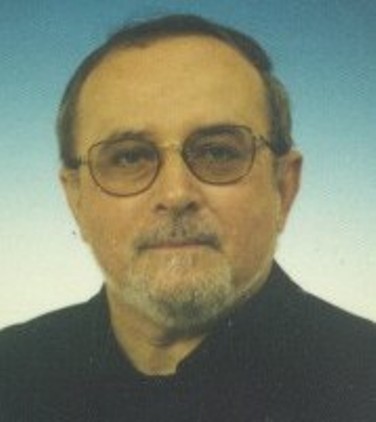Daniel Comboni
Comboni Missionaries
Institutional area
Other links
Newsletter
In Pace Christi
Rustighini Eugenio
Eugenio was born at Jerago, in Varese Province, on 17 June, 1942. At the age of eleven years he joined the seminary of the Tommasini in Turin (1953-1958), and there completed the Gymnasium. During his final year there he met Comboni Fr. Enrico Farè, then in charge of vocations promotion. Having kept in contact with him by letter, in 1958 Eugenio asked and was granted permission to enter the Comboni missionaries. It had been decided in those times that candidates would complete their High School before entering the novitiate so Eugenio was sent to Carraia (Lucca).
He entered the novitiate at Gozzano (Novara), and took his first vows in 1963 and perpetual vows in 1966. He did the first three years of scholasticate at Brescia, where he was also prefect of the junior seminarians, and his fourth year at Venegono. He was ordained priest on 28 June, 1967, at Milan, by Cardinal Giovanni Colombo.
After his ordination he was sent to the minor seminary at Rebbio (Como) for six years (1967-1973) as formator and the person in charge of elderly confreres. He was then appointed to Central Africa.
It is interesting to note that Central Africa formed part of the Vicariate of Comboni, even though he could do nothing there due to lack of personnel. It was only in 1966 that a group of Comboni missionaries reached the Republic of Central Africa, establishing themselves in the two parishes of Agbosi and Mboki, in the diocese of Bangassou. Their arrival and their presence had been motivated by the presence of tens of thousands of Sudanese refugees, mostly Azande, in the south-east of the country. After the Addis Abeba agreement of 1972, the refugees gradually returned to Sudan and there began a new phase of the Comboni mission in Central Africa. Once the problem of the refugees was ended, there was a period of thirty years during which Sisters, brothers and fathers endeavoured to respond to the needs of the Church and the people of Central Africa in several areas and dioceses of the country. There were challenges for everybody and in all fields: from dialogue with Islam to a firm but constructive approach to religious sects; from the scourge of AIDS to involvement in the formation of lay people at all levels so that they could take over the leadership of democratic development of the country and the growth of a mature and dynamic Christian community.
This was the context in which Fr. Eugenio lived for fifteen years (1973-1988), during which he worked at Boda mission as parish priest and local superior, and at Bangui as provincial superior of Central Africa (1981-1986) that at the time included some communities in Chad, and then in pastoral ministry.
One of his characteristics, as provincial, was his constant care for the physical and moral health of the confreres. If he noted a problem in a community, he did not hesitate to undertake the long journey of hundreds of kilometres to visit the confreres to help to resolve the problem in the best way possible and restore serenity to the community.
Fr. Eugenio was provincial during the most difficult and delicate moments in the life of Central Africa and Chad: coups, civil wars, tensions between guerrillas and government. They were times of fear and danger for everyone: many innocent people were killed and many villages destroyed. The missionaries were cut off from one another for some months since it was dangerous to travel. All contact with them was lost and it was becoming increasingly difficult to receive permits to enter or leave the country.
Appointed to Italy in 1988, Fr. Eugenio worked at Casavatore (1988-1991) in the field of missionary animation, as bursar and in pastoral assistance to immigrants. From 1991 to 1999 he was at Gordola (CH), engaged mostly in looking after the sick. He was transferred to Venegono where he worked in missionary animation and pastoral ministry up to the end of his life. He transformed his physical frailty into a “mission”: through his active presence in the community, his ministry in the nearby parishes, making himself available for confessions and spiritual direction to the many people who came to see him, and through dedicating much of his time to prayer.
Fr. Eugenio died at Venegono (Varese) on 17 March, 2010. His funeral took place on 19 March at Jerago, his native town. The Parish priest, Fr. Remo Ciapparella, noted that, precisely on that day, a meeting had been planned with Fr. Eugenio in connection with the year of the priesthood but he had given his testimony by his death at the end of a life given to God.
The testimony of a confrere: “His death left a great emptiness but also a great inheritance: he taught us that life is lived day by day, as a gift to be loved and shared. We may say that the entire life of Fr. Eugenio was characterised by fidelity: fidelity to his missionary vocation, fidelity to prayer, fidelity to the tasks he was given during almost forty seven years of religious life and forty three of priestly ministry.”

